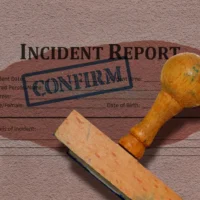WHAT DO I DO IF I WAS HURT AT A BUSINESS?

What should I do if I am hurt in a store, restaurant, or other business?
I often get calls from people who were hurt when they were a customer in a retail store, restaurant, public building, or other business. The injuries occur in various ways: tripping on a hazardous obstacle, slipping on improperly maintained floors, an employee not paying attention on the job, or by the actions of a person completely unrelated to the business itself. Usually, people want to know, “What do I do?” The exact steps any one person should take depend on the circumstances of the injury. Still, there are some basic, proactive steps everyone can do. These are best practices, and they’re important. They are not always essential.
Medical Treatment
If you are hurt, and you feel you need medical attention, seeking medical treatment and being proactive can be important. Early medical intervention can make a difference in your case. More importantly, it might make a difference in your health and recovery from any injuries. Personal injury cases are about seeking damages for injuries from the responsible entities, but even if you do not make a monetary recovery that you see as fair, it is usually a good idea to look after your own health in your day to day life.
Document the Incident
If you made a report to the on-site manager or risk department, that is an excellent first step. If you had to be transported from the business by ambulance or another emergency service responded, the business likely created a report without you asking. Frequently, we hear people explain they did not talk with anyone at the store because they were embarrassed and just wanted to leave. That’s okay, too. Once you have had a moment—or a day, or even a week—to collect yourself, think about what happened in detail. Then, you can call the business, ask to speak to a manager about an injury, explain to the best of your ability when, where, and how you were hurt, and ask that they make a report.
Surveillance Videos
Advances in technology are making it easier and cheaper for businesses to have comprehensive video coverage of their premises. People often tell me they know there’s video of their fall because they could see cameras everywhere. If the incident was not reported, the business would not have an opportunity to review and preserve the video. Many of the video systems are on a continuous feed, and the system will only keep footage for a certain amount of time. When making the report, particularly if you notice the presence of cameras in the store, ask them—in writing—to preserve the video. This may be helpful later on.
Am I entitled to have a copy of an Incident Report or Store Video?
Attorneys like to have access to all the available information in a case. This includes the incident report, witness contact information, statements, and video, if possible. Businesses sometimes try to limit their liability by holding back that same information that is within their possession. That can create a natural tension: Injured customers want the information; stores want to keep it private, if possible. If the premises where you were hurt is owned or operated by a public entity—for example, a school, a public sidewalk, a public hospital, or a municipal building, etc.—disclosure of that evidence may be required under public records laws.
However, if the business is a private entity, there is not typically a duty to disclose that evidence. If you ask the business’s personnel at the time you make the statement to the business, you might get a copy of the incident report, or at least a copy of your statement. You will almost never get a copy of the video. The business may be more willing to be helpful if they are not the at-fault party, for example if you were struck in their parking lot.
An experienced attorney will know to quickly send the business a “Non-Spoliation” letter. This letter will request the video and report, request that the store act quickly to preserve that evidence. It will also advise that failure to preserve the evidence may result in adverse findings or rulings in the event of litigation. The business will, in all likelihood, preserve their evidence.
The only time a private business will be required to produce the incident report or surveillance video is in response to discovery requests in litigation.
Conclusion
There is no hard and fast way to approach preserving and obtaining incident reports or videos when you are injured in a private business. Although public entities may be required to disclose certain information in response to a public records request, private businesses typically play their cards close to their vest. If it is necessary to file a lawsuit in your case, the business will be required to disclose its evidence. Short of litigation, you are not entitled to the documents, but you can take important steps to put yourself on sound footing in the event of a lawsuit.
About the Author
Benjamin P. Melnick

